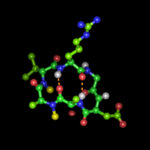Overview:
Thiamin
Thiamin (or thiamine) is one of the water-soluble B vitamins, also known as vitamin B1. Thiamin is naturally present in some foods, added to some food products, and available as a dietary supplement. This vitamin plays a critical role in energy metabolism and, therefore, in the growth, development, and function of cells.
Overview of Benefits:
Thiamine is an essential nutrient that all tissues of the body need to function properly. Thiamine was the first B vitamin that scientists discovered. This is why its name carries the number 1. Like the other B vitamins, thiamine is water-soluble and helps the body turn food into energy.
Thiamine helps support many functions within the body, including the nervous system, heart, and brain. Thiamine is important for the production of adenosine triphosphate (ATP). This is a molecule that transports energy within cells. It supports many functions in the body, including muscle contractions and the movement of signals from the brain.
Thiamine helps support many functions within the body, including the nervous system, heart, and brain. Thiamine is important for the production of adenosine triphosphate (ATP). This is a molecule that transports energy within cells. It supports many functions in the body, including muscle contractions and the movement of signals from the brain.
Impacts on Health and Sources:
People at Risk of Deficiency
People at risk of deficiency
Alcohol Dependency
In highly industrialized countries, chronic alcohol use disorders appear to be the most common cause of thiamin deficiency. Up to 80% of people with chronic alcoholism develop thiamin deficiency because ethanol reduces gastrointestinal absorption of thiamin, thiamin stores in the liver, and thiamin phosphorylation. Also, people with alcoholism tend to have inadequate intakes of essential nutrients, including thiamin.
Older Adults
Up to 20%–30% of older adults have laboratory indicators that suggest some degree of thiamin deficiency. Possible reasons include low dietary intakes, a combination of chronic diseases, concomitant use of multiple medications, and low absorption of thiamin as a natural result of aging. Some small studies have found that the risk of deficiency is particularly high in elderly people who reside in an institution.
HIV/AIDS
People with HIV infection have an increased risk of thiamin deficiency and its sequelae, including beriberi and Wernicke-Korsakoff syndrome. Autopsies of 380 people with AIDS found that almost 10% had Wernicke’s encephalopathy, and some experts believe that thiamin deficiency is underdiagnosed in this population. The association between thiamin deficiency and HIV/AIDS is probably due to malnutrition as a result of the catabolic state associated with AIDS.
Diabetes
Some small studies have found that thiamin levels in plasma are up to 76% lower in people with type 1 diabetes than in healthy volunteers and 50%–75% lower in people with type 2 diabetes. Other studies have shown a higher risk of thiamin deficiency in people with type 1 and/or type 2 diabetes based on tests of erythrocyte transketolase activity. These lower thiamin levels might be due to increases in clearance of thiamin by the kidneys. The relevance of these effects to clinical prognosis or outcomes is not known.
Effects of Deficiency in Vitamin B1
Sources of Vitamin B1 and Recommended Intake
Benefits of Vitamin B1














